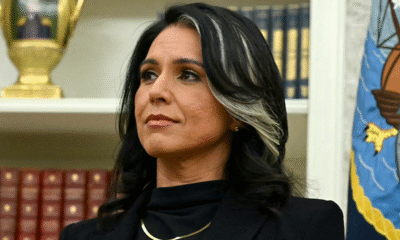INTERNACIONAL
Libertarians like Ron Paul warned against REAL ID — is the criticism merited? Experts weigh in
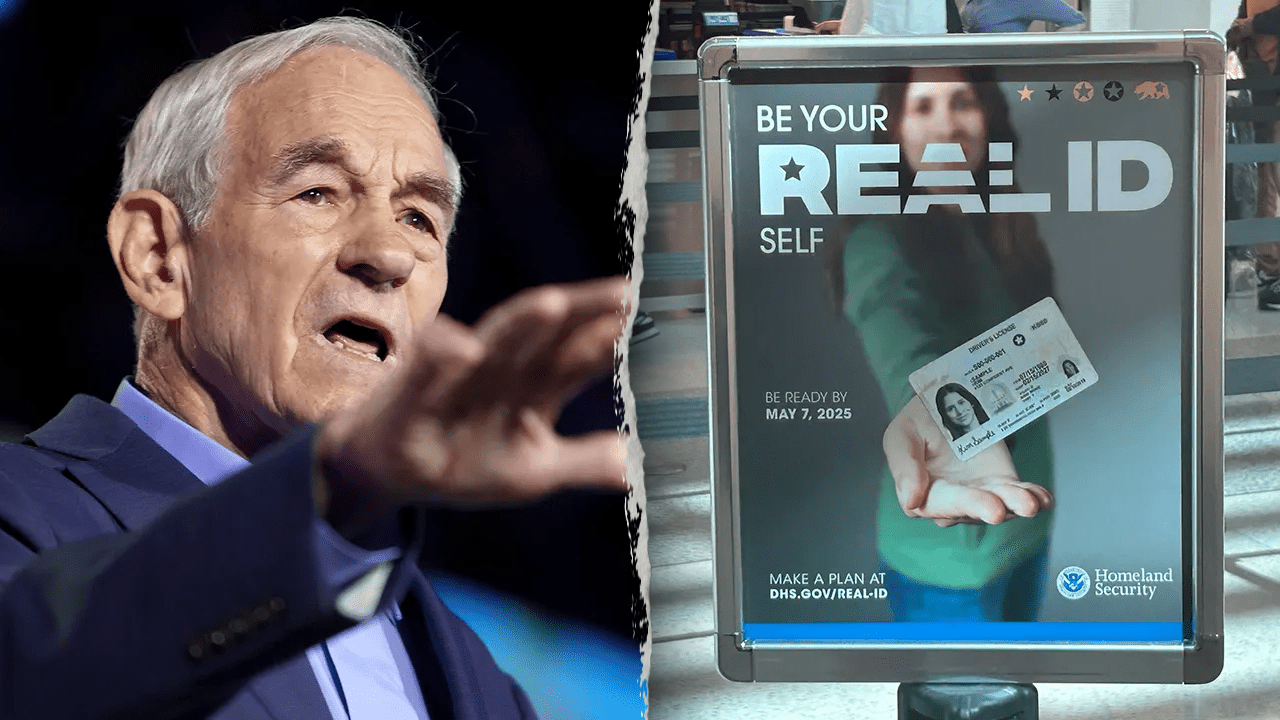
While many public policy leaders believe implementation of REAL ID requirements across the country will bolster national security, some more libertarian critics say the Bush-era protocol could come at a cost to individual liberty and bigger government, with one expert telling Fox News Digital it essentially sets up a de facto national ID system and treats law-abiding Americans with suspicion.
When Congress debated REAL ID in 2005, libertarian Rep. Ron Paul, R-Texas, strongly opposed the move, positing that it constituted a national ID card that had no limitations on what type of information could be stored on it, posing a significant threat to American civil liberties.
After being signed into law, the implementation of REAL ID was repeatedly postponed during administrations of both political parties, including the first Trump administration during the height of the COVID pandemic. This year, however, the Transportation Security Administration (TSA) and the Department of Homeland Security (DHS) set a new deadline for obtaining a REAL ID of May 7. Having REAL ID-compliant identification will be required to board domestic commercial airline flights and to access some federal facilities like courthouses or military bases.
So, should citizens be concerned about getting a REAL ID? Fox News Digital spoke to two policy experts, one supportive and one critical, for their views.
WHAT IS REAL ID? DEADLINE APPROACHES FOR NEW IDENTIFICATION CARDS REQUIRED TO FLY DOMESTICALLY
When Congress was voting on REAL ID in 2005, prominent libertarian Rep. Ron Paul, R-Texas, strongly opposed the move, positing that it constituted a «national ID card» that had no limitations on what type of information could be stored on it, posing a significant threat to American civil liberties. (Joe Raedle/Getty Images | Fox News Digital)
What are the benefits?
Simon Hankinson, a senior fellow at the Heritage Foundation’s Border Security and Immigration Center, told Fox News Digital that requiring additional documentation to obtain a REAL ID will have a significant impact on identifying and cracking down on terrorism and other illegal activity in the U.S., including illegal immigration.
By requiring a REAL ID to fly, Hankinson explained that IDs offered by liberal states to illegal immigrants will no longer allow those illegals to easily move about the country unchecked.
He pointed to the Sept. 11 attacks in 2001, in which several of the al Qaeda terrorists involved had obtained valid state licenses, which were accepted for boarding their flights.
And while Hankinson acknowledged that concerns about data privacy are legitimate, he pointed out that most Americans already have much of their information stored in databases such as that of the Social Security Administration.
‘WE’RE SIMPLY NOT READY’: REAL ID ROLLOUT COULD TRIGGER NATIONAL HEADACHE, STATE LAWMAKER WARNS

Some women are having a hard time getting their REAL ID due to marriage name changes. (iStock; Fox News Digital)
Hankinson said the government will have to be held to the highest standards to uphold citizens’ privacy. Still, he compared the risk-reward scenario posed to the nation by REAL ID to nuclear power.
«If it’s done right, you can mitigate the risks, and you can have, like France, 75, 80% of your power from nuclear power plants,» he said. «If you cut corners, and you put the wrong people in charge and you take risks, then you end up with Chernobyl.»
What are the concerns?
But Jim Harper, a senior fellow of digital privacy and constitutional law at the American Enterprise Institute, told Fox News Digital that though REAL ID is not technically a national identification card, since it is issued by individual states, obtaining one enters private citizens into a national database, effectively making it a national identification system.
«REAL ID is a national ID system. And historically, national ID systems have been used for terrible things,» he said. «We want to make sure that we don’t position ourselves in the United States ever to have that much authority reside with the government. And so, for two decades now, I’ve been arguing against REAL ID, simple as that.«
BLUE STATES RALLIED FOR ILLEGAL IMMIGRANTS TO OBTAIN DRIVER’S LICENSES AHEAD OF TRUMP’S REAL ID CRACKDOWN

A display on a TV at an airport advertises REAL ID. (Fox News)
What is the problem with being entered into a national system? Harper explained that his concern is that setting up such a system treats American citizens as suspects before they have committed any crimes.
He granted that the dangers of REAL ID are «not as urgent» as something like the Patriot Act, which was passed in the wake of 9/11 and significantly expanded the scope and powers of law enforcement and intelligence operations in the U.S., but that it similarly expands the ability of the government to control and monitor its citizenry.
«I reject the idea of having law-abiding American citizens put into a national I.D. system because they might be terrorists. That’s not the way we do law enforcement in this country, to treat people as suspects from go,» he said. «I don’t think natural born citizens should, should be put into a national I.D. system for immigration control. That’s the that’s the problem of illegal immigration being visited on the citizen. That’s not how it’s supposed to work.»
In his view, the «burden» of the reasons for having a national ID «all falls on the citizen, on the individual who’s not accused of any crime or any wrongdoing. That’s not the way to do it.»
WHAT DID THE BUSH ADMINISTRATION, 9/11 COMMISSION SAY ABOUT REAL ID LEGISLATION?

Starting May 7, passengers will be required to have a REAL ID or other compliant identification in order to travel. (iStock)
What should I do?
Harper predicted that the federal government will ultimately bend on enforcing REAL ID requirements and continue to «kick the can down the road» as they have done for two decades.
CLICK HERE TO GET THE FOX NEWS APP
What’s more, according to both Hankinson and Harper, citizens in most states will still have other options available to them if they want to opt out of getting a REAL ID.
In the end, the decision of whether to obtain a REAL ID or to accept the risks of not doing so rests with individual citizens.
Privacy,National Security,Immigration,Terrorism
INTERNACIONAL
Trump-aligned legal group probes Biden-era organ transplant program over ethical concerns
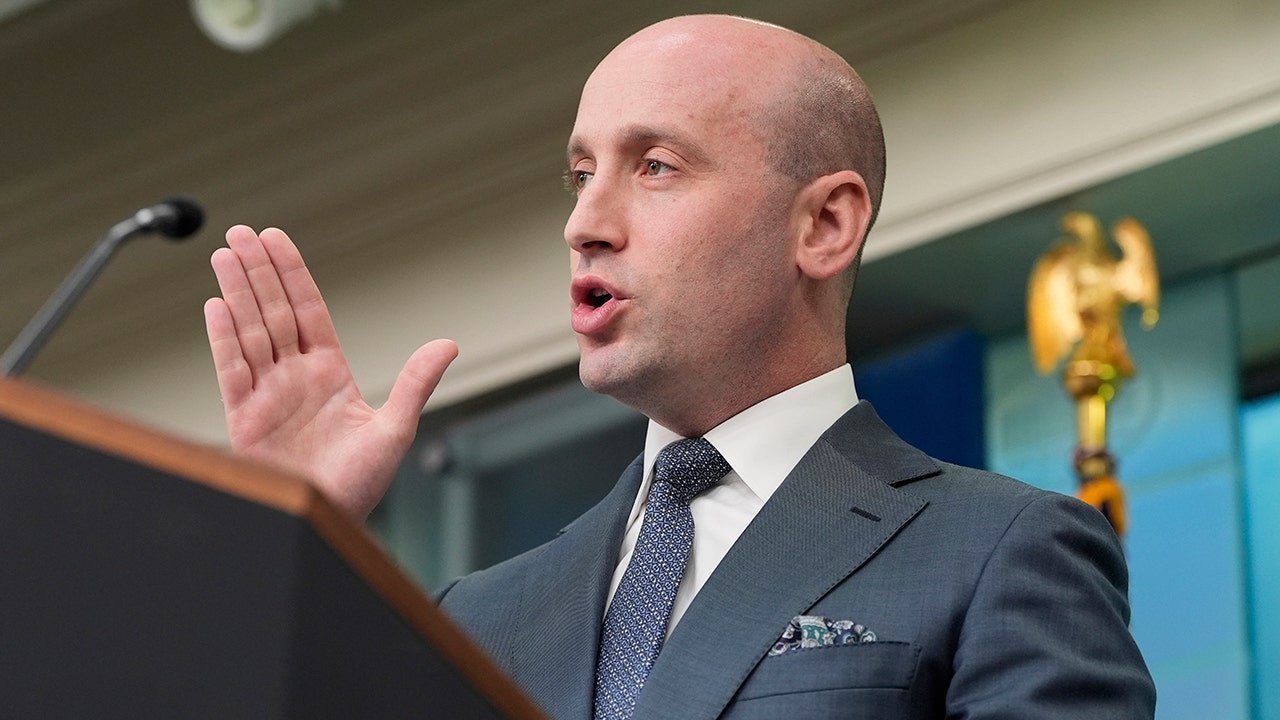
NEWYou can now listen to Fox News articles!
FIRST ON FOX — A Trump-aligned legal group founded by White House aide Stephen Miller filed Freedom of Information Act requests Thursday targeting a Biden organ transplant program that critics warn could be open to abuse.
The requests from America First Legal went to the Department of Health and Human Services, the Centers for Medicare & Medicaid Services, and the Health Resources and Services Administration. At issue is the Increasing Organ Transplant Access Model, a six-year mandatory program finalized in December 2024 and set to take effect in July 2025, which aims to expand access to kidney transplants but has drawn criticism from Trump officials who warn it may be vulnerable to outside influence.
The model builds on earlier payment experiments, testing whether financial rewards and penalties can improve care and expand access for Medicare and Medicaid patients.
Trump officials and allies, including America First Legal, argue the system risks distortion by outside interests — a charge that prompted AFL’s FOIA requests as part of a broader investigation.
TRUMP’S EXECUTIVE ORDER ON VOTING BLOCKED BY FEDERAL JUDGES AMID FLURRY OF LEGAL SETBACKS
Health and Human Services Secretary Robert F. Kennedy Jr., speaks during a news conference at the Health and Human Services Department on Apr. 22, 2025 in Washington, D.C. (Andrew Harnik/Getty Images)
They cited in part recent findings from an HRSA-led probe published earlier this year. That investigation suggested third-party groups or for-profit organizations «may have unduly influenced the IOTA Model»— though their exact role or the extent they may have done so is unclear.
HHS Secretary Robert F. Kennedy Jr. also cited concerns from the study, which the department said in a statement «revealed clear negligence and disturbing practices» by a large organ procurement organization in the U.S., prompting him to launch a new reform initiative.
In previewing the FOIA requests to Fox News Digital, AFL cited related concerns about patient safety, ethical misconduct, and discrimination in organ allocation, among other things.
The requests ask HHS, CMS and HRSA for a long list of information regarding the program and related correspondence — including emails, letters and memos between agency personnel and third-party representatives about the development or implementation of the IOTA Model. They also seek meeting records, agendas and summaries of discussions involving agency staff and outside officials.
The payment model will affect more than 100 U.S. transplant hospitals over six years, imposing mandatory financial incentives and penalties tied to a final performance score.
FEDERAL JUDGE BLOCKS TRUMP’S BIRTHRIGHT CITIZENSHIP BAN FOR ALL INFANTS, TESTING LOWER COURT POWERS
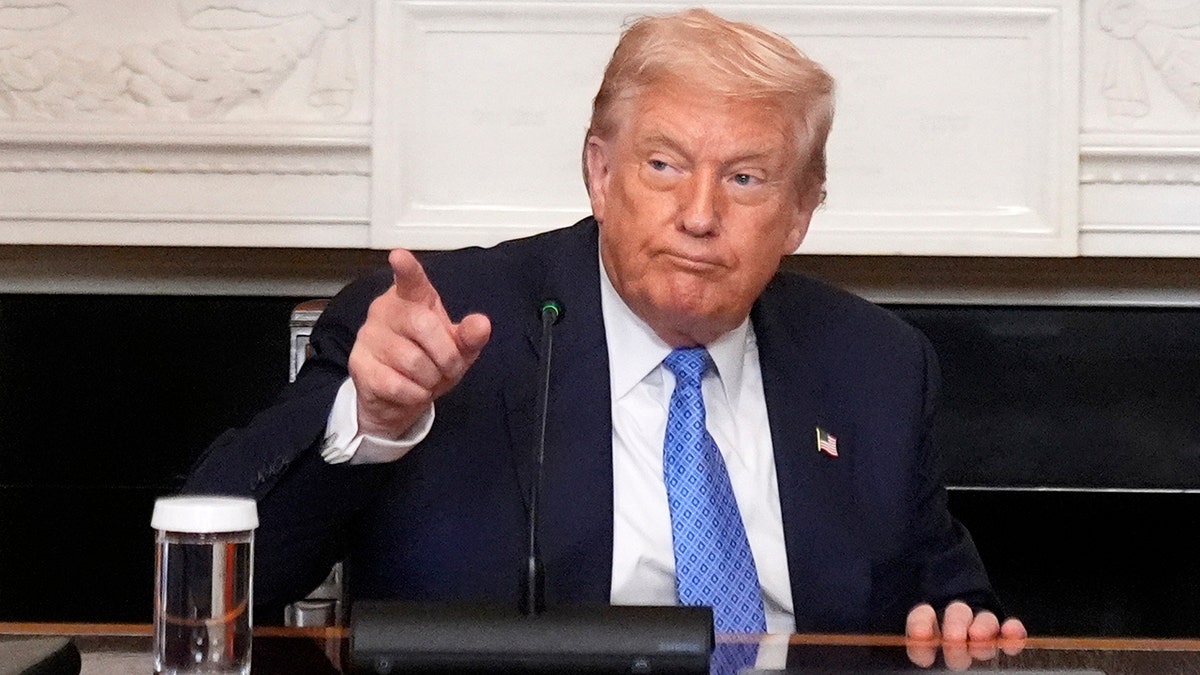
President Donald Trump gestures in the State Dining Room of the White House, Friday, Aug. 8, 2025, in Washington. (AP Photo/Mark Schiefelbein)
IOTA was touted as a way to help increase access to organ donors and transplants in the U.S. and help address the long waiting list of patients awaiting a transplant, which as of last fall stood at roughly 90,000 people.
Participating hospitals are evaluated for their performance in three key areas, according to CMS’s final rule, which took force in July, including the volume of kidney transplants, their matching efficiency, and post-transplant outcomes of their patients. But the role outside groups have played, including during the process of drafting the final rule, has prompted criticism and calls for additional scrutiny from Trump allies, including AFL.

The U.S. Department of Health and Human Services building is pictured in Washington on Monday, July 13, 2020. (Caroline Brehman/CQ-Roll Call, Inc./Getty Images)
«Self-interested third parties should play no role in shaping America’s organ transplant policy,» AFL counsel Laura Stell told Fox News Digital in a statement previewing the FOIA requests and broader investigation.
«Where monetary incentives and penalties come into play, there must be utmost certainty that CMS developed the program without influence from entities with improper motives.»
CLICK HERE TO GET THE FOX NEWS APP
America First Legal, though not officially part of the Trump administration, was founded by longtime Trump adviser Stephen Miller after Trump’s first presidential term.
Miller stepped down from AFL before rejoining the White House in 2025 as Trump’s deputy chief of staff.
donald trump,white house,justice department,robert f kennedy jr,politics
INTERNACIONAL
El director que creyó que era un genio y estafó a Netflix: su serie era una mentira y podría ir 50 años preso

Podría ser otra de esas historias de fracasos de Hollywood, de presupuestos despilfarrados, de sueños desmesurados que terminan en un desastre colosal. Pero esta historia es mucho más que eso. Todo salió tan mal que el director puede terminar condenado a 50 años de prisión.
Aquí hay de todo: megalomanía, excesos, un fraude millonario, locura. Y un gigante involucrado (y estafado): Netflix.
Carl Rinsch es un director de cine norteamericano. Se dio a conocer con piezas publicitarias y algún corto que llamaron la atención de Hollywood. Lo ayudaba una personalidad desbordante, arrollador; era un gran vendedor de sus ideas. Lo apoyaba Ridley Scott, para quien trabajaba.
Dicen que contaba sus proyectos con una convicción contagiosa. Sin haber debutado como director de largometrajes estuvo a punto de que le confiaran la precuela de Aliens y la remake de Fuga en el Siglo XXIII (Logan´s Run), una mítica ciencia ficción de mediados de los setenta. Al final el proyecto que salió fue una adaptación fantasy y grandilocuente de 47 Ronins, la leyenda sobre heroicos samurais protagonizada por Keanu Reeves. Durante el rodaje el presupuesto se fue estirando. Rinsch gastó 175 millones de dólares que el estudio nunca recuperó. La película fracasó en taquilla y fue rechazada por la crítica. Parecía que a Rinsch le iba a resultar muy difícil rescatar su carrera incipiente, parecía que estaba condenado a filmar publicidades por el resto de sus días.
Pero pocas cosas lo detenían a este hombre.
Junto a su entonces esposa Gabriela Roses Betancor, modelo y diseñadora de moda uruguaya, Carl Rinsch desarrolló un proyecto para una serie de ciencia ficción llamada White Horse. Narraba la historia de unos robots con forma humana llamados Orgánicos Inteligentes diseñados para brindar ayuda humanitaria. Pero de a poco la población empieza a temerles, a desconfiar de ellos y los ataca. Allí comienza un combate descarnado.
Leé también: La mujer más deseada del mundo: el brutal crimen de la conejita que cambió para siempre la historia de Playboy
Puso parte de su dinero y consiguió productores que financien la filmación de seis cortos de entre 4 y 10 minutos para poder vender la serie. El plan original era un producto de 13 capítulos de dos horas cada uno. 13 películas que contarían una gran historia. El rodaje de ese material ya fue problemático. Para abaratar costos filmó en Europa y en África, esquivando a los sindicatos de Hollywood. Pero su estilo perfeccionista y sus manías se devoraron pronto el presupuesto. Su inversor escapó espantado y apareció Keanu Reeves -con el que mantenía buena relación desde 47 Ronins– para aportar como productor asociado los dólares necesarios para finalizar los cortos que servirían para vender el proyecto.
Carl Rinsch era uno de los directores más prometedores y terminó en la ruina. (Foto: AP)
En 2018 las plataformas buscaban contenido alocadamente. Estallaba el boom del streaming y todavía no habían encontrado un equilibrio. Todas las series parecían funcionar y nadie quería perderse el próximo gran impacto. HBO, Amazon y Netflix pelearon por White Horse. Eso aumentó la cotización del director y el presupuesto de la producción. Fue como una subasta alocada, fuera de control, en la que todos pierden perspectiva y suben la oferta. Parecía que sería de Amazon por más de 10 millones de dólares pero terminó ganando (en este caso es sólo una forma de decir, un eufemismo) Netflix. La oferta monetaria para los cradores fue más generosa pero agregó algo más, que tendría vital trascendencia en esta historia. Le otorgó al director el corte final, una verdadera rareza en el mundo de las plataformas. Esa cláusula, la de otorgarle a Rinsch el poder de decisión final puede ser una de las más costosas de esta nueva era del streaming.
La producción era muy ambiciosa. Para esa altura ya había cambiado de nombre. La serie se llamaría Conquest. Netflix imaginaba que tenía entre manos una nueva gran saga, que podría explotar con muchas temporadas, precuelas, secuelas, spin offs y merchandising. Parecía un gran negocio.
Las banderas rojas que no vieron
En el fragor de la pelea por quedarse con la serie, en la obnubilación por triunfar en la subasta, Netflix no prestó atención a algunas alertas. Las disputas de Rinsch con los inversores iniciales (obtuvieron varios millones de dólares con sus reclamos posteriores), la forma de manejarse de Rinsch en el set (maltratos, arbitrariedades y poco apego al presupuesto) y a que -algo fundamental- los guiones todavía no estaban terminados. Destinaron un presupuesto de casi 65 millones de dólares. Carl Rinsch, en 2019 en Uruguay, en pleno rodaje de la serie Conquest. (Foto: gentileza El País de Uruguay)
La preproducción y el rodaje estuvieron gobernados por los problemas de Rinsch. Gritos, insultos, elementos arrojados, cámaras derribadas. Nadie lo veía dormir; parecía estar despierto las 24 horas del día. Sus allegados luego lo acusaron de abusar de drogas prescriptas para el déficit de atención (él después reveló que está dentro del espectro autista y que tiene TDHA) y de otras drogas no recetadas. La esposa, otros familiares, miembros relevantes de la producción y amigos hicieron una intervención solicitándole (conminándolo a) que entrara a rehabilitación. Pero Rinsch sólo aceptó tener una especie de ayudante terapéutico que duró nada más que un par de semanas a su lado; muy rápido logró deshacerse de él.
Leé también: Carlitos Balá, del colectivo 39 al prime time: así se construyó una leyenda que marcó a generaciones
Definir la conducta de Rinsch como errática sería generoso, un calificativo tenue. Le enviaba mails a los directivos de Netflix afirmando que él conocía el mecanismo secreto de la transmisión del Covid que surgía desde el centro de la tierra o que presumía de poder de predecir cuándo y dónde caería un rayo o el momento exacto en el que un volcán entraría en erupción.
Lo que entró en erupción fue la producción de Conquest.
La pandemia detuvo el rodaje un tiempo. Cuando reanudaron, el director le pidió a Netflix otros 11 millones de dólares para terminar la serie. Les dijo que sin esa inyección de dinero el proyecto naufragaría. Netflix, una vez más, aceptó y liberó esa suma (a ese momento llevaba invertidos 55 millones de dólares).
Apenas recibió la plata, Rinsch sacó casi todo de la cuenta de la producción, dejó 500.000 dólares. Los restantes 10 millones y medio los transfirió a su cuenta personal. Compró bonos y acciones pero sus inversiones fueron un enorme fracaso. En unas pocas semanas se esfumaron casi 6 millones de dólares.
Los directivos de la serie intentaron averiguar en qué estado se encontraba la serie; si algo del proyecto podría salvarse. Se encontraron con el mutismo del director y con que nadie del equipo sabía bien dónde estaban parados. Tardaron unas semanas más en darse cuenta de que Conquest era una quimera irredimible. Al ver que ya llevaban más de 55 millones de dólares gastados y que ni siquiera había un capítulo finalizado, la empresa decidió dar por concluido el proyecto. Salvarlo parecía imposible y demasiado costoso. Prefirieron dejar de perder dinero y en especial dejar de lidiar con Rinsch y sus excentricidades.
Le anunciaron vía mail todo se cancelaba y que él podía revenderlo si quisiera. Pero con una enorme salvedad: el nuevo comprador-productor debía pagar a Netflix cada dólar que había puesto.
Rinsch respondió con mails furiosos. Pero el destino de la serie estaba dictado.
En el medio de esa disputa también se terminó su matrimonio. Su esposa uruguaya lo acusó de maltratos, de hacer agujeros en las paredes con sus puñetazos cuando le agarraban ataques de furia y de destrozar buena parte del mobiliario del lugar en el que se alojaban.
Él sostuvo que ella se había complotado con miembros del equipo técnico para asesinarlo.
Mientras su gran proyecto y su matrimonio se derrumbaban, Rinsch tomó los cuatro millones de dólares que quedaban de lo que le había enviado Netflix y los invirtió en criptomonedas. Si con las acciones le había ido pésimo, con las cripto ocurrió todo lo contrario. Tuvo un éxito furibundo. Cuando cobró, esos 4 millones se habían transformado en 27 millones de dólares. Salió a gastar eufórico. En pocas semanas se compró 5 Rolls Royce, una Ferrari, relojes de 400.000 dólares y ropa y muebles de diseñadores exclusivos. Tal vez el gasto más estrafalario haya sido el de unos colchones suecos hechos a mano por los que pagó 650.000 dólares. Se calcula que gastó casi 10 millones de dólares en total.
Las demandas comenzaron a llegarle de manera aluvional. La ex esposa y Netflix fueron por él. El juicio de divorcio demostró los gastos y el ocultamiento de dinero. Netflix ganó un juicio por daños por casi 12 millones de dólares (y la devolución de todo el material filmado hasta el momento). Rinsch se declaró insolvente y aún no pagó. Se da una paradoja: los honorarios de los abogados que lo defienden de los reclamos de Netflix los pagó con el dinero que le entregó Netflix.
El director veía la situación de manera diferente. O al menos sus (costosos) abogados. Su lugar era, según su propia perspectiva, el de víctima. Demandó a Netflix por el final anticipado del contrato, la acusó de incumplimiento y exigió 14 millones de dólares de resarcimiento.
El director podría recibir una pena de más de 50 años. (Foto: gentileza El País de Uruguay)
Ante el reclamo de Netflix intentó justificarse asegurando que las compras de todos esos bienes carísimos eran parte de la producción de la serie. El argumento fue jurídicamente insostenible. Entonces dio un vuelco de 180 grados y dijo que esa plata le pertenecía y se la habían dado a título personal. Ningún documento respaldó esa afirmación.
El FBI se involucró y lo acusó de cometer varios delitos como fraude electrónico, lavado de dinero y participar de actividades ilegales. La pena en total, sumando las respectivas condenas, podría superar los 50 años.
En estos últimos años cada vez que los periodistas quisieron hablar con el director, él se negó. Sostenía que el artículo en cuestión seguramente sería impreciso y no haría justicia con los hechos ni con su persona, que lo más probable lo harían quedar como alguien fuera de sus cabales y él, afirma, está completamente en sus cabales.
Leé también: La historia de Julio Iglesias: 4 mil mujeres y un affaire con una vedette argentina que le costó su matrimonio
Sin embargo, esto varió cuando se debió defender en los estrados penales. Sus abogados alegaron que en los momentos en que dispuso de la plata estaba bajo un estado de psicosis que le impedía pensar y actuar con claridad. Lo atribuyeron a su adicción a las drogas, al consumo desmesurado de medicación prescripta, al stress por encabezar un proyecto de esa magnitud y al malestar y desequilibrio psiquiátrico que produjo la pandemia en él.
Sus argumentos, dicen los expertos, tienen escasa posibilidad de imponerse.
El juez fijó el juicio para principios de diciembre. En estos días Carl Rinsch debía presentarse en una audiencia preliminar. Dijo que era imposible porque está absolutamente quebrado y no podía afrontar el viaje desde Los Ángeles hasta Nueva York. El juez ordenó a la oficina de Marshalls de Estados Unidos que se encargara del traslado y así lograr que el acusado acuda a la audiencia y comparezca ante el juzgado.
Acaso nunca veamos las escenas que se filmaron de Conquest. Es muy probable, de todas maneras, que algunas vez Netflix produzca una serie que narre las alternativas del proyecto y su fracaso estruendoso.
Tienen entre manos una historia muy atractiva protagonizada por un gran personaje.
Netflix, Hollywood, estafa, Keanu Reeves
INTERNACIONAL
Trump hails Texas redistricting approval that could add five GOP congressional seats nationwide
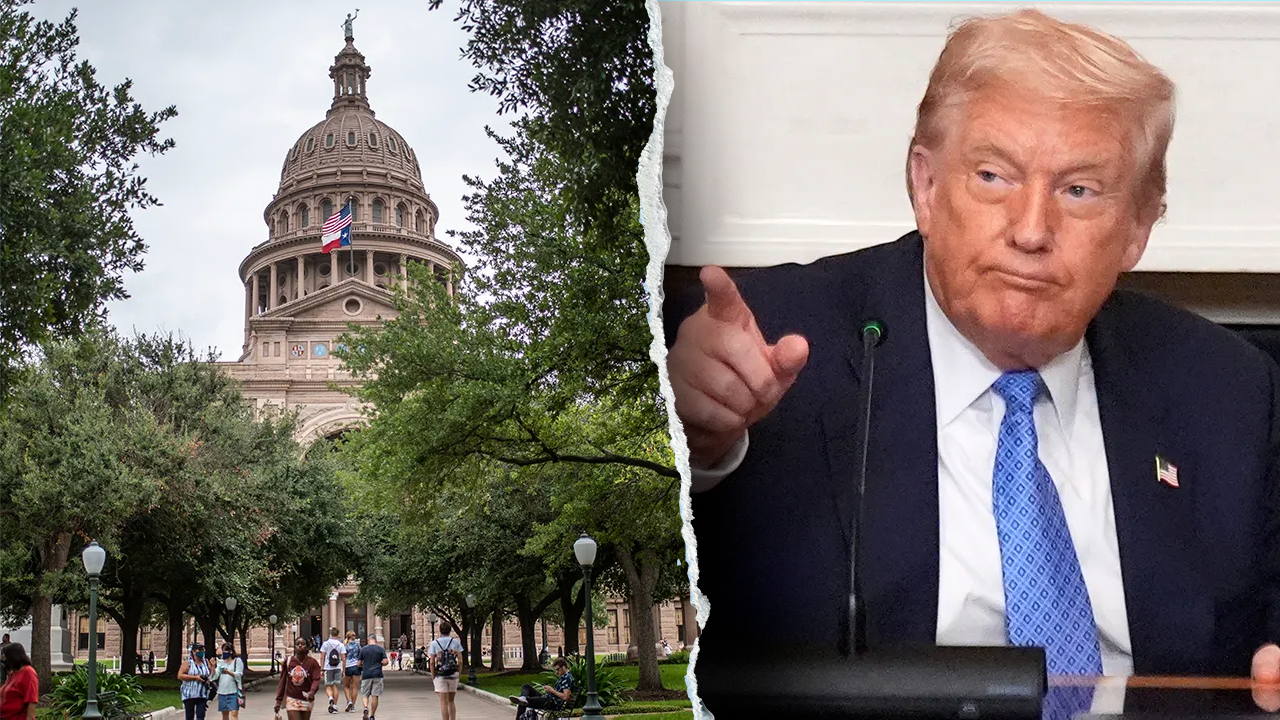
NEWYou can now listen to Fox News articles!
President Donald Trump is calling Texas lawmakers’ approval of a sweeping redistricting plan to add up to five new GOP-leaning congressional seats a «Big WIN» for Republicans.
Trump fired off a post via Truth Social hailing the state for «never letting us down,» saying the victory was more than a state win but a national turning point. He went on to urge other Republican-led states to follow the Lone Star State’s lead.
«Big WIN for the Great State of Texas!!! Everything Passed, on our way to FIVE more Congressional seats and saving your Rights, your Freedoms, and your Country, itself. Texas never lets us down. Florida, Indiana, and others are looking to do the same thing. More seats equals less Crime, a great Economy, and a STRONG SECOND AMENDMENT. It means Happiness and Peace,» he said.
TEXAS GOP LAWMAKERS POISED TO FINALIZE TRUMP-BACKED MAP AFTER DEM REDISTRICTING WALKOUT ENDS
Following Texas Democratic lawmakers’ return on Monday, President Donald Trump urged the state legislature to move quickly to pass a highly controversial redistricting bill, saying, «Please pass this Map, ASAP.» (Sergio Flores/Getty; Mark Schiefelbein/AP)
Trump also suggested that a move in that direction could secure as many as 100 additional seats for the GOP nationwide if they followed suit.
«But Republicans, there is one thing even better – STOP MAIL-IN VOTING, a total fraud that has no bounds. Also, go to PAPER BALLOTS before it is too late – At one tenth the cost, faster, and more reliable. If we do these TWO things, we will pick up 100 more seats, and the CROOKED game of politics is over. God Bless America!!!,» the post went on.
Texas Republicans pushed the new congressional map through the state House Wednesday in an 88–52 party-line vote, brushing aside Democratic objections in a bid to strengthen the GOP’s hold on Congress heading into 2026.
WITH TEXAS DEMS BACK, TRUMP URGES LEGISLATURE: ‘PASS THIS MAP, ASAP’

A major battle over congressional redistricting took place at the Texas State Capitol. (Jordan Vonderhaar/Bloomberg via Getty Images)
While Trump celebrated the redistricting as a major Republican win, Democrats framed it as only the beginning of a much larger legal battle.
«This part of the fight is over, but it is merely the first chapter… Our best shot is in the courts. This is not over. We will continue fighting,» said Rep. Gene Wu of Houston.
Texas House Democrats also accused the GOP of trying to dilute minority voting power, saying the map was illegal and racially discriminatory.
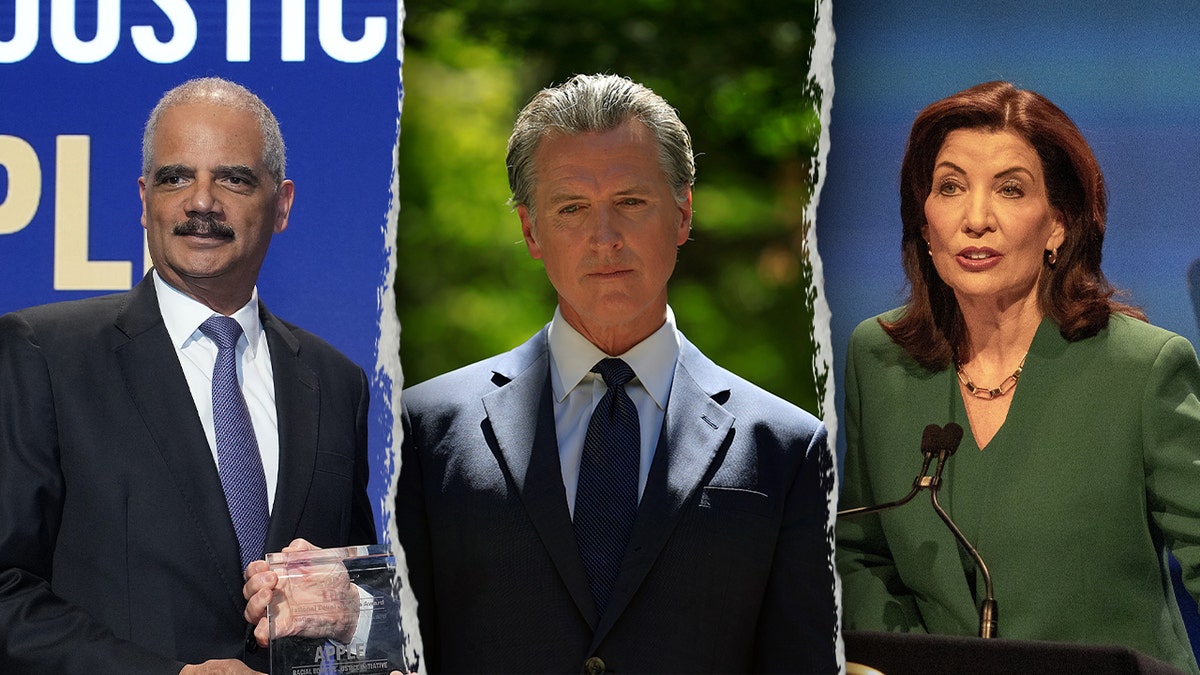
Democrats have signaled retaliation in response to Republican redistricting efforts across the country, particularly in Texas. (Getty Images)
«Members, it breaks my heart to see how this illegal and rigged, mid-decade redistricting scheme is dividing our state and our country,» Rep. Chris Turner, a Democrat, said. «This is Texas, it’s not Washington D.C. The impulses of outside politicians and their billionaire backers shouldn’t dictate what we do in this chamber, in this House.»
«This process was a total sham from the very beginning… This is a racist power grab that especially goes after our African American and Latino representatives,» said Rep. Jon Rosenthal
Republicans defended the map as necessary to reflect population growth and safeguard voter representation.
«Different from everyone else, I’m telling you, I’m not beating around the bush,» Rep. Todd Hunter, said about the map’s goal. «We have five new districts, and these five new districts are based on political performance.»
CLICK HERE TO GET THE FOX NEWS APP
California Gov. Gavin Newsom and the California Democrats unveiled their new map last week in an effort to nullify the map Texas Republicans were creating. If that bill is passed, it would create five new Democratic-leaning congressional districts that would counteract Texas.
The dueling maps highlight the high-stakes fight for control of the House, with both parties using redistricting to try to lock in their advantage before 2026.
texas,donald trump,congress,republicans elections,democrats,california,gavin newsom

 POLITICA3 días ago
POLITICA3 días agoPamela David se disculpó con Karina Milei por haber dicho que usaba un reloj de lujo

 CHIMENTOS3 días ago
CHIMENTOS3 días agoUno por uno los famosos que serán candidatos en las próximas elecciones legislativas: «Van desde Virginia Gallardo y el Turco García hasta Porcel JR.»

 POLITICA2 días ago
POLITICA2 días agoCorrupción y escándalos: por qué no hay que votar al kirchnerismo en las próximas elecciones

